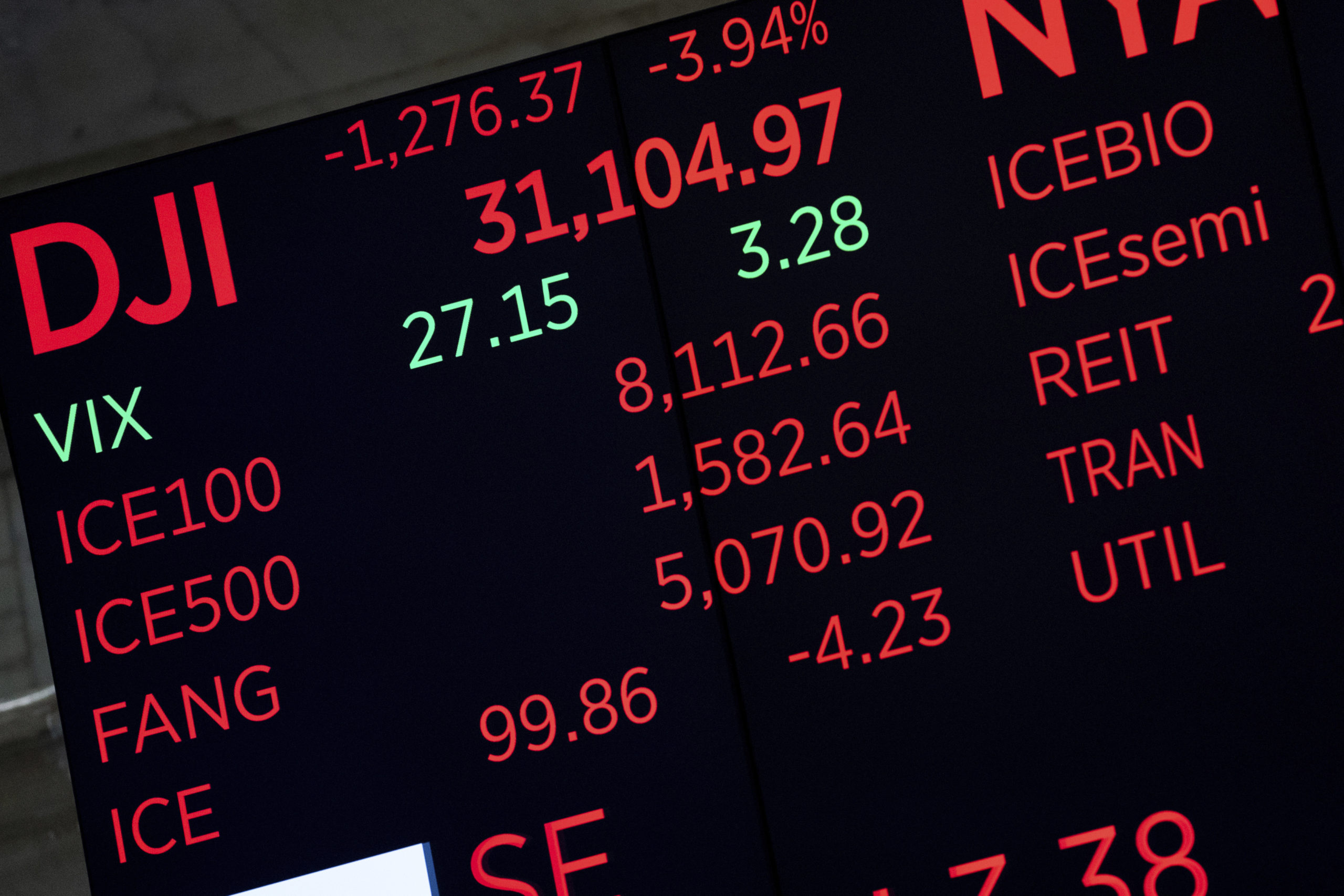NEW YORK (AP) — When it comes to meeting Wall Street’s expectations for profit and sales, it’s put-up-or-get-beat-up time for CEOs.
It hasn’t happened very often, but when companies have turned in both weaker profits and sales this reporting season than analysts expected, investors have walloped them with record-sized punishments for their stock prices.
Google’s parent company Alphabet, for example, committed the sin of reporting $69.1 billion in revenue for its latest quarter, instead of the $71 billion that Wall Street expected, along with earnings below forecasts. Its stock plunged 9.1% the next day, its second-worst showing in more than a decade. That was 8.4 percentage points worse than the 0.7% drop for the overall market that same day, as measured by the S&P 500.
Alphabet isn’t alone in feeling the pain. With just over half of all S&P 500 companies having reported their results for the summer, those that fell short of expectations for both profits and sales saw their stocks perform 6.7 percentage points worse the next day than the S&P 500, according to a recent BofA Global Research report. That’s a much bigger hit than usual and potentially on track for a record. The historical average is just a 2.4 percentage point gap.
To be sure, the damage hasn’t been as bad for companies that can top expectations for either profit or for sales, which has been the majority of them. But the degree of punishment shows how averse investors are to disappointment when a fragile economy is threatening sales and higher costs are dragging on profitability.
Looking ahead, analysts have been cutting their forecasts for S&P 500 profits in the upcoming reporting season at a faster rate than usual, according to Deutsche Bank strategists. The pressure is still on, and expectations for 2023 may have to come down even more sharply if the economy does fall into a severe recession, as some investors fear.

